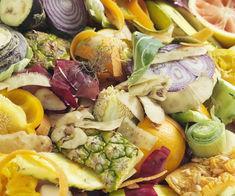
The fresh produce industry needs to consider the range of consumers buying its products, including single-person households, as well an on-pack and in-store information on at-home storage of its products if the UK is to tackle the horrifying amount of fresh produce wasted in the home.
The message came from Richard Swannell, director of retail and organics programmes at the Waste & Resource Action Programme (WRAP), as he revealed early findings from the group’s research ahead of its full publication in the summer. “The main reason we have come out with this now, is that we were staggered by the figures,” Swannell told freshinfo.
He revealed that 4.4 million apples, 5.1m potatoes, 1.6m bananas, 2.8m tomatoes and 1.2m oranges are thrown away untouched every day from homes throughout the UK.
According to WRAP research, carried out with Sainsbury’s and Mack Multiples by East Malling Research, fresh fruit and vegetables make up 40 per cent of the 6.7m tonnes of food waste generated by homes in the UK every year.
Swannell said that although many packs already contain information on storage, there is more the industry can do. “We are working with Sainsbury’s to look at shelf-barkers and other information in store for loose produce, and whether or not they work,” he said.
The practice of selling pre-packed fresh produce and offering buy-one-get-one-free offers has been criticised by anti-packaging and waste campaigners in the past as contributing to food waste, but Swannell indicated this may not be the case. “There is no clear evidence so far that BOGOFs or poly-bagging are making a difference,” he said.
“But one element the industry could consider is the range of consumers, and that an increasing number of them are living on their own. There could also be information about the best way to get value from BOGOF offers, such as cooking and freezing a proportion of the produce.
“Half price, rather than BOGOF deals might be more appropriate for single person households,” he suggested.
Findings from the WRAP research will be shared with all other retailers and the industry in the summer.



